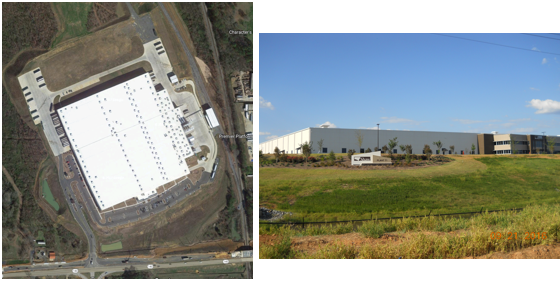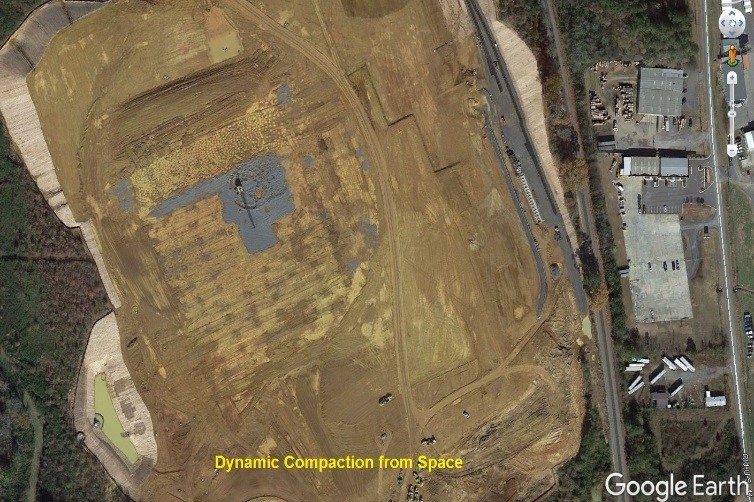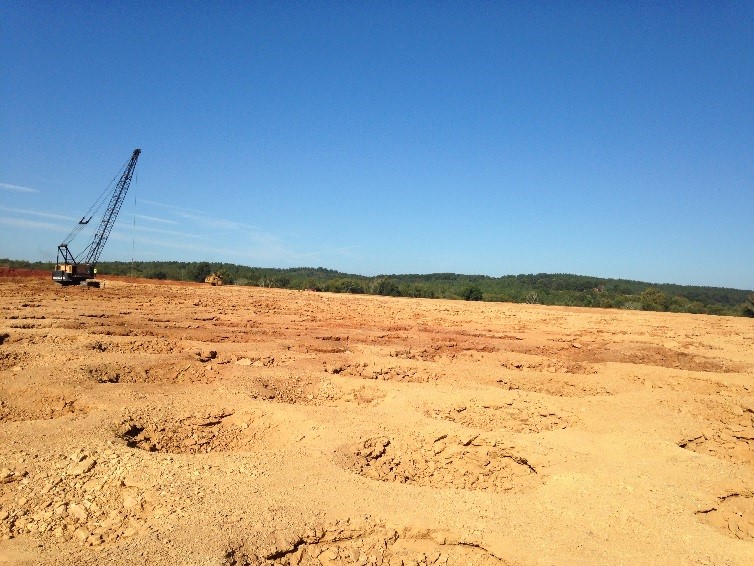2017 ASCE Project of the Year – Large Project Award
Geo-Hydro is proud to announce that our project submission, Shaw Industries T-1 Plant in Adairsville, Georgia, has won the ASCE Georgia Section “Project of the Year – Large Project” award. This award recognizes projects involving design and construction of facilities that are predominantly civil engineering in nature and that have a built environment total project cost of more than $7,000,000.
We will be celebrating and receiving recognition for our contributions and participation at the 2017 ASCE Georgia Section Annual Meeting & Banquet on Friday, August 25th 2017. Geo-Hydro is honored to receive this award. We want to thank and recognize the City of Adairsville, Georgia, Densification, Inc. (Dynamic Compaction Specialist), Southland Engineering (Civil Engineer), William J. Peltier and Associates (Structural Engineer), KRH Architects (Architect), and EMJ Construction (EMJ Corporation), for their contributions and team collaboration in this successful project. Last, but not least, we want to recognize and thank Mr. Tommy Thompson and all Shaw Industries Group’s project participants and executives for their vision and support.
BRIEF EXPLANATION OF THE PROJECT
Project Description: Starting in 2013, Geo-Hydro Engineers began work on a new manufacturing plant in Adairsville, Georgia, for Shaw Industries Group. Plant T-1 is an $85 million, 650,000-square foot manufacturing, warehouse, and office space project for Shaw Industries’ commercial carpet tile production line. Geo-Hydro provided geotechnical engineering exploration and consulting, construction phase consulting, Special Inspections, and construction materials testing services. Site development included mass grading, site walls, utilities and infrastructure, access roads and truck aprons, and railroad spurs.

Project Benefits: Positive, long-term economic development and local employment of approximately 500 people in Adairsville and Bartow County, Georgia, are the main project benefits to the community. Additionally, the project was designed and constructed in accordance with Shaw Industries’ corporate sustainability goals and requirements to achieve LEED® Silver certification, reducing the immediate and long-term environmental impact of the development. Sustainable and reduced-impact project features include the use of natural lighting inside the building, LED illumination throughout including limited footprint parking and access road lights to reduce light pollution, highly insulated building envelope, non-irrigated landscaping using native species and xeriscaping, low-flow fixtures throughout, and many more.

Why Should This Project be Recognized? The site geology, subsurface conditions, and soils onsite presented steep challenges. Karst-related anomalies such as rock pinnacles and weak solutioned zones located near finished floor elevation and within the foundation influence zone defied conventional solutions to reliably and economically develop the site. Conventional options for foundation support such as conventional shallow foundations, piles, aggregate piers, mat foundations, grouting, and soil mixing were all either too costly, technically unreliable, or both.
After extensive field exploration and evaluation of site development options, Geo-Hydro recommended using Dynamic Compaction to manage the risks associated with variable and weak subsurface conditions associated with karstic geology. The use of dynamic compaction to detect, collapse and stabilize karstic features is a relatively uncommon approach which proved beneficial and very economical for the project.

In addition to using an uncommon approach to manage geologic and geotechnical risks, the project also included the use of more conventional, practical solutions to site development problems including the use of Portland cement to stabilize the building pad and pavement areas, and the use of Roller Compacted Concrete for the access roads and truck traffic areas.
Mechanically stabilized earth (MSE) walls were used to facilitate grade changes between the railroad spur and the plant building.
The use of different approaches and techniques to manage geologic risks and site-specific geotechnical challenges makes this project worthy of recognition from an engineering perspective. The commitment of Shaw Industries to sustainable development and LEED® Silver certification is worthy of recognition as Shaw demonstrates leadership in sustainable construction practices and corporate responsibility to the environment and the public at large.
